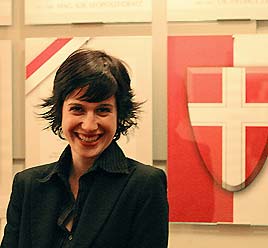 |
 Council must restart software patents debate from scratch
The Greens/EFA Group in the European Parliament today called upon European Agriculture and Fisheries ministers to consider growing public and political hostility towards a proposed directive on software patents and to reject the legislation. The Agriculture and Fisheries Council will decide on the controversial directive, which aims to legalising patents on software in the European Union, at a meeting in Brussels tomorrow, Tuesday 21 December.
The Competitiveness Council reached political agreement on this directive with great difficulty on 18 May 2004, The political situation today, however, is radically changed and the directive has diminishing support from Members States. The Dutch parliament has adopted a motion to ask its government to vote against the software patents; Poland and Latvia have joined Spain, Belgium, Italy and Austria in the "no" camp, and the German Bundestag will soon adopt an all-party motion asking the government to reject the directive. Daniel Cohn-Bendit, Co-President of the Greens/EFA Group questioned the way in which the directive has been added 'in extremis' to the order of the day: "The Dutch presidency has incredibly kept changing the agenda right up until the last minute, in a way that is bordering on illegal. The presidency is prepared to do anything to get this directive through and avoid a new vote, which, in my opinion, would no longer reach a qualified majority if the Council were to vote again today." Austrian Green MEP Eva Lichtenberger added: "The winds have changed! Resistance to the planned patents directive is growing and many Member States have already changed their mind. I find it incomprehensible therefore that the Council is still trying to push through this contested directive. Patent rights, it is claimed, protect inventors, but in this case it is exclusively the interests of the big companies that are protected. Smaller, innovative firms cannot afford the patenting and legal costs that the directive would inflict on them: the legislation has the effect of a tax on innovation -– which is paradoxical at a time in which the EU is trying to reanimate the Lisbon process and its aims to increase competitiveness. Council must take these radically different circumstances into account and restart the debate on software patents from the beginning." |












